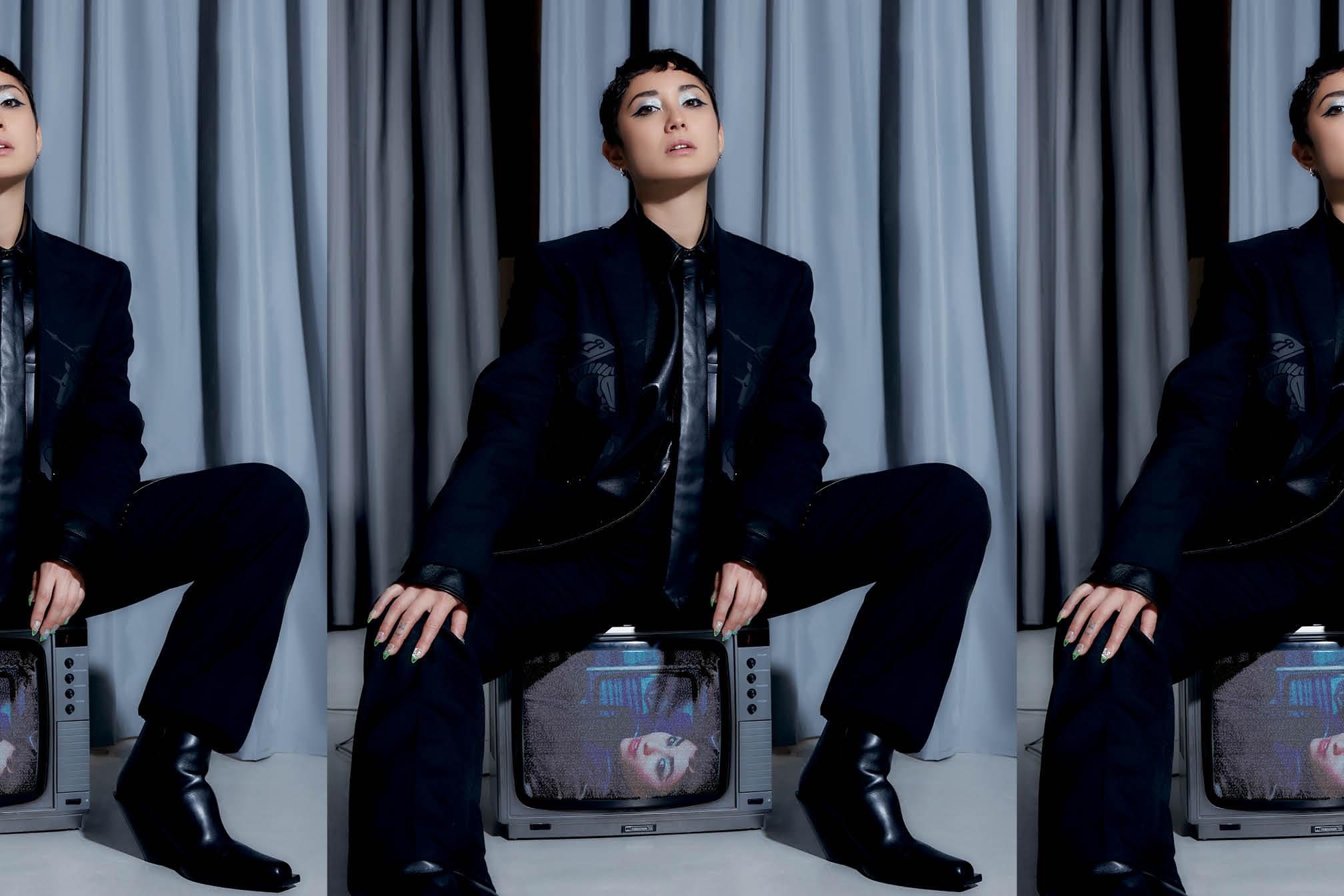 Features
Features
Always high-energy: Peach is ready to explore her own fully-realised vision
Peach speaks to Megan Townsend about her mystical new label Psychic Readings, fantasy fortune tellers and the importance of having fun
It’s January 2022 and Serena Pasion, or as you might know her, Peach, is strolling around the streets of New York City with some time on her hands. Already toying with the idea to launch her own imprint, a plethora of colourful fortune-teller signs captured her imagination. Quickly snapping pictures of each one and saving them in a folder on her phone, Serena began crafting together a concept. “When I got back, I woke up from this really deep sleep one night,” she tells me almost a year later. “All these ideas just came to me, I wanted a phone line, and then I started to imagine my own fantasy fortune teller.” The hypothetical clairvoyant in question, Miss Cookys, ended up being the inspiration behind a track on the label’s debut EP ‘Fortune One’.
Despite an appreciation for all things mystical, it’s clear Serena doesn’t rely on fortune alone in her approach to life and career. With a solid foundation of self-assurance, exuberance and a clear reverence for the spaces she plays in, Peach has grown from a burgeoning selector to an all-out rave oracle, delighting the party circuit with her ceaseless appetite for high-energy club music. Just as comfortable playing sunrises on the Adriatic as she is ramping up the tempo within the unshuttered light of Panorama Bar, or dishing out some tongue-in-cheek bangers to the bedraggled masses of Glastonbury’s South West Corner alongside SASS (Saoirse, Shanti Celeste, Peach and Moxie) — Peach’s delicious blend of jackin’ house, stripped-back percussion and bolshy rollers have earned her rightful place as one of the most in-demand DJs within the underground music sphere.
From her origins as a tech-house aficionado in Toronto, it was in basement venues across the pond where this self-described “ball of energy” would earn notoriety. Sets at Corsica Studios, The White Hotel, De School, and, of course, That Boiler Room, earned her a loyal band of ravers ready to follow her to dancefloors near and far. Her beloved, multi-faceted monthly NTS show and a string of rinsable releases on the likes of Peach Discs, Intergraded, kaptcha and more have only bolstered this adulation among the crowds and the artists she shares her stage with. “Everything you get from Peach is authentically her, from her productions to the way she DJs and her energy as a person — it always oozes everything which makes her special,” Can You Feel The Sun honcho Parris tells me. “She’s someone who is always open to others, keeps her mind open and is willing to take her time. She’s in it for the long haul.” Now taking on the role of label boss with the launch of her Psychic Readings imprint, Peach is ready to share her vision with the world.
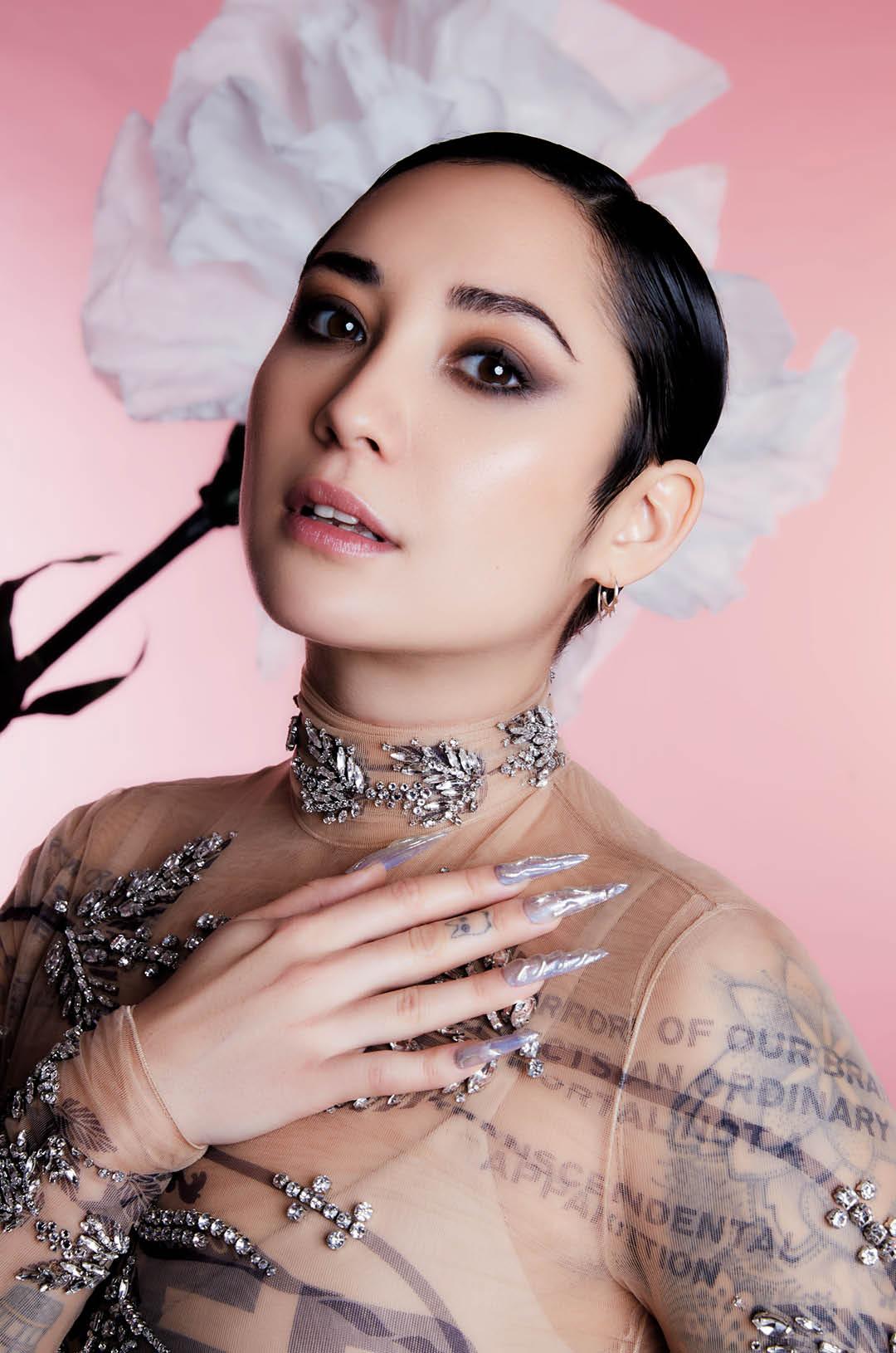
Having continued honing in her idea, Serena returned to NYC this summer and visited one of the mediums she’d observed six months prior. “I wanted to find out If I was going down the right path, but I didn’t tell him anything about the label at all. At one point he said: ‘You have a big project coming, you will be pushed into this new space and you'll be challenged’. I left feeling vindicated. That was always the purpose of the label, to explore my own sound and get creative. I wanted it to be an extension of myself. I still have the recording on my phone of the reading, I promised him I wouldn’t sample it.” Inspired by greats such as E.B.E and Bushwaka (E.B.E’s ‘Square One’ inspired the title of her label debut), Peach wanted Psychic Readings to have a clear vision and identity. Having grown up in Canada, around the playful North American approach to the supernatural, she felt paying homage to psychic culture was the way to go — infusing both the music and aesthetic of her label with nods to TV ads, phone lines, tarot and even celebrity psychics like Miss Cleo. Ahead of the label’s launch, Peach set up a phone line that her followers could call. “I thought about the way people respond to these kinds of calls, there are so many varied reactions and different reasons for contacting a psychic. I've been handing out cards at gigs with the number on, and people are ringing it and leaving me voicemails. Most are just asking me for track IDs though to be honest,” she laughs.

Born and raised on the shores of Lake Ontario, Serena describes having a mixed introduction to music from her parents. “My dad was the ‘cool dad’, he was super into new wave, he had this spiky hair that was a little bit silvery and he’d pick me and my little brother up from school in this van that had an N64 in the back. My mom loved Andrea Boccelli and Sarah McLachlan — the most Canadian mom shit ever. I really wish I had one of those stories where my parents listened to dance music and like, passed it on — but, honestly, the first music I remember listening to and thinking ‘this really hits’ was the Backstreet Boys. I was a pop kid.” It was weekends spent in front of the TV, taking in back-to-back noughties music videos on Canada’s MTV equivalent Much Music that formed the basis for Serena’s early musical obsessions. “I'd watch every single music video: Britney, Puff Daddy, Missy Elliot. It was that era where hip hop and R&B fused into pop music — I love everything from that era so much. Ashanti, Ja Rule, Fat Joe — that stuff was undeniably the best.”
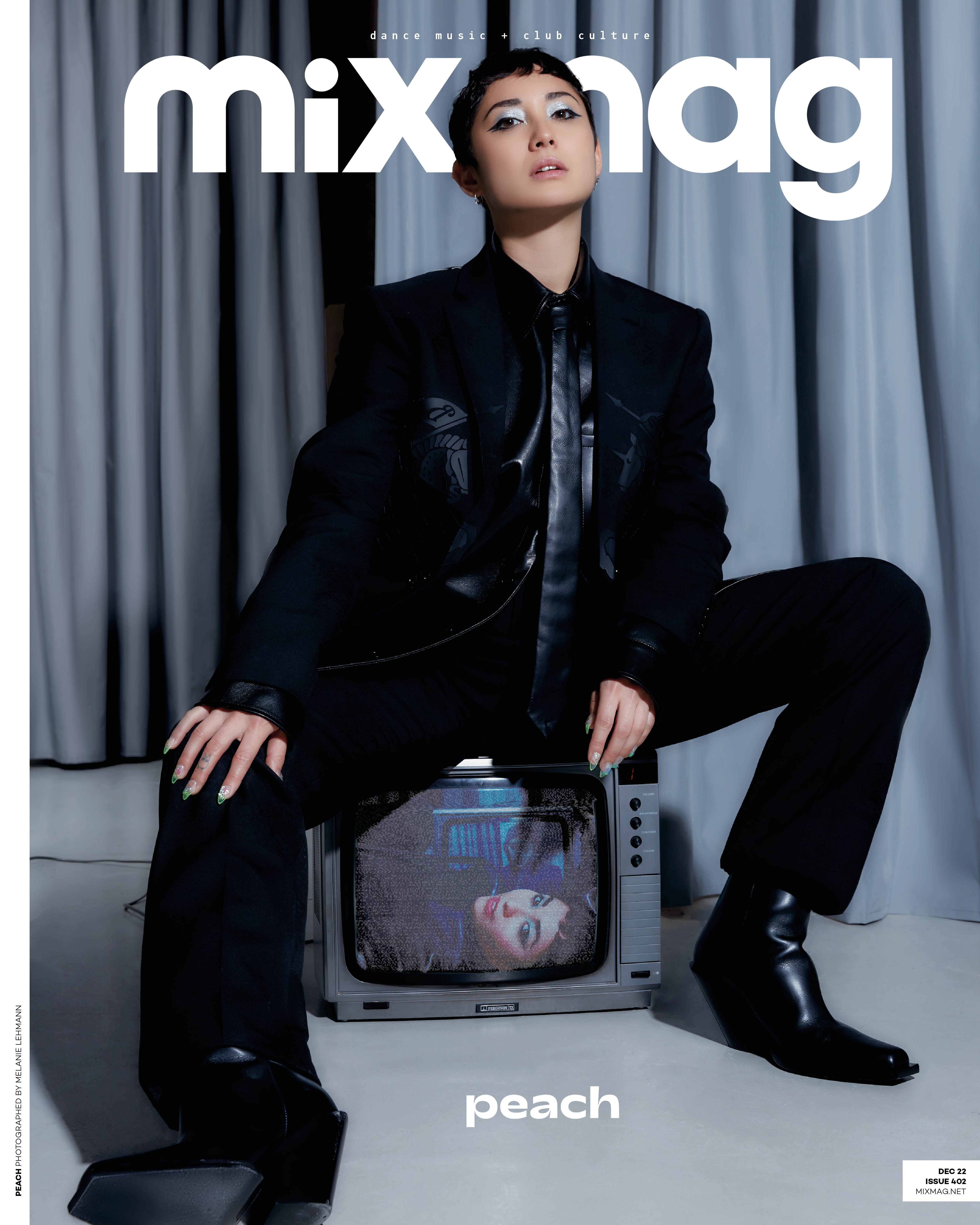
I ask her when the transition came from R&B to rave, and she covers her eyes for half a second while laughing: “Ok, so it was Laidback Luke, Erol Alkan and Calvin Harris — I think he’d just put out ‘You Used To Hold Me’,” she explains, singing along to the title of Harris’ 2010 track. “I’d gotten a bus to Montreal with my friends and I was really riding on the nu disco vibe. It was a Halloween party and I was dressed as Pikachu,” she laughs. “I loved Laidback Luke, I felt this close identity with him because he's Filipino and I'm Filipino — I felt like he really understood me.” Filled with a sense of determination, impulsivity and some dental-grade anaesthetic, Serena made the decision to buy her first decks after getting her wisdom teeth removed. Despite her now-mastery of the CDJs, she admits that she didn’t exactly take to the craft like a duck to water: “They were CDJ 800s, which only took CDs — I was barely mixing really bad tech-house.”

She confesses that her “first wave” of dance music obsession had come by way of tech-house greats like Seth Troxler and The Martinez Brothers. “When I moved to Toronto, I started to go to this club called Footwork during the time of ‘Benediction' and 'Au Seve'. I distinctly remember watching Julio Bashmore play there. I just really loved the rave.” The “moment” for Serena, she says, came about when she saw Ricardo Villalobos for the first time at Movement in Detroit: “He knocked the needle off the record and he was looking around and I had no idea what was happening. Then he just casually realised and put it back on. I loved that energy then and I love it now. When there's too much dust on a record I'll just pick it up, who cares?!” Her “second wave” came after a hiatus from DJing; having never tried her hand at vinyl before a friend had offered to put an order in at Berlin’s Hard Wax, and she describes feeling a “connection” to records from Dance Mania and DJ Sprinkles: “I picked up DJ Sprinkles Vs K-S.H.E ‘Hush Now’ EP — the K-S.H.E track ‘B2B’ on the record, it got me into DJing. I still have it, I fucking love it so much.” Not long after she changed her DJ name to Peach, a nod to a pet name used by her former roommate.
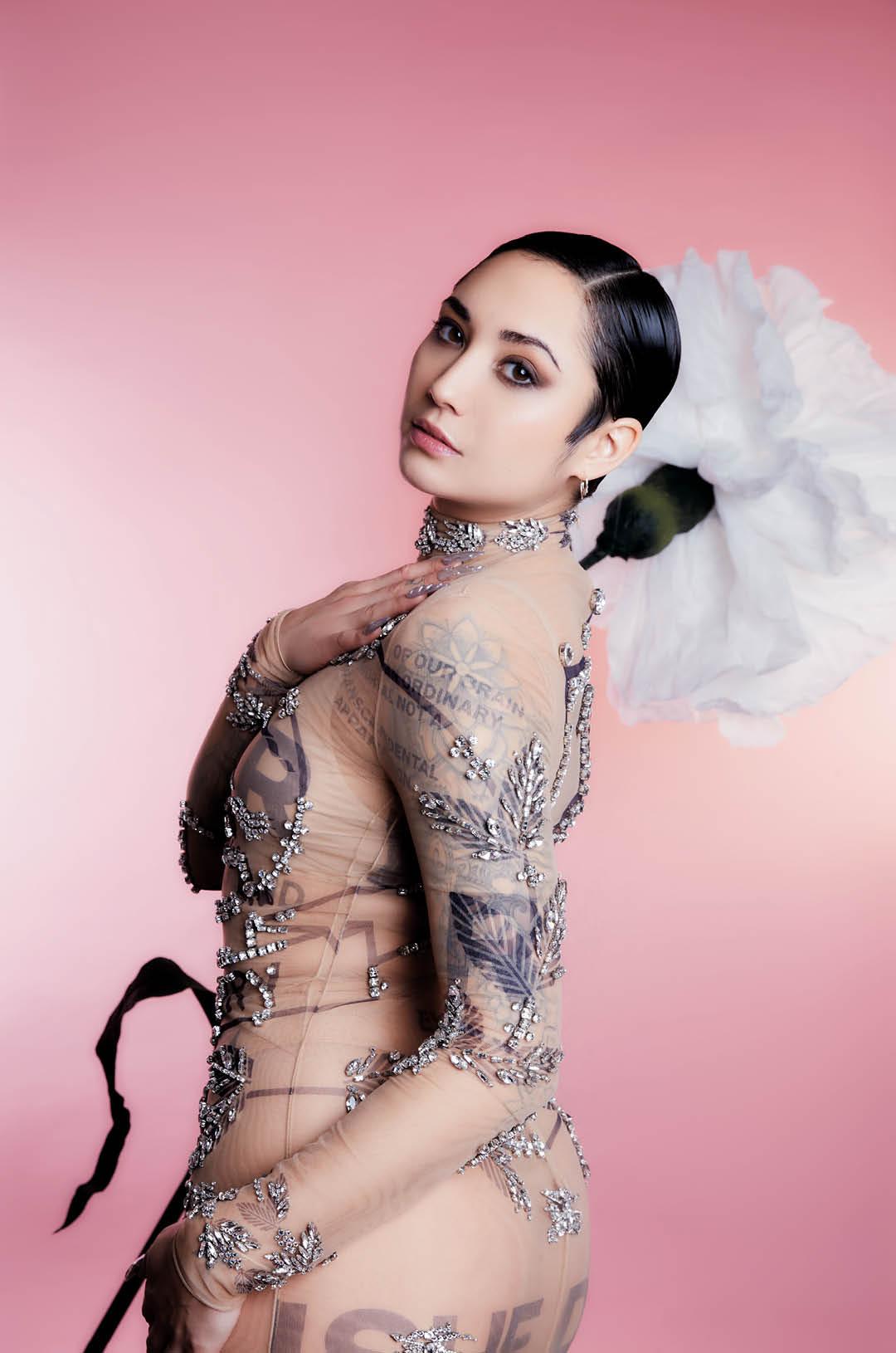
In Summer 2015 she made her first steps toward moving to Europe, inspired by a trip around the continent in what she describes as classic “typical North American goes to Dekmantel, has the best time ever and then goes to Berlin and spends two days in Berghain and decides they are moving to Europe” tale. Returning in October that year, Serena made the decision to stay in London and Berlin for five days each with an initial intention to move to the German capital – however, plans were thwarted by an unfortunate experience. “I got rejected from Berghain, twice,” she laughs. “To be honest it was too cold though really, eternal grey skies and -10. Then I would be in London where it’s like 10 degrees, coming from Toronto you’re kinda like: ‘Woah, this is chill’.” While in London, she plunged into the city’s nightlife — visiting clubs such as Corsica Studios and fabric. Resolute, she secured a transfer with her job at an advertising agency and packed her bags, moving to the UK the following April.
While she describes her first few months in London as lonely, Serena quickly made a circle of friends within the city’s dance music scene by “spending every weekend in Corsica'' and taking on a dance music slot at the now defunct Radar Radio, a role she credits with giving her the “presenting style” and “focus on craft” she still uses on NTS. Eventually, she would land her first string of bookings: a Coastal Haze party alongside DJ Fett Burger, Discwoman x Find Me in The Dark at Corsica, and a Room for Rebellion party where she met her now friend and collaborator Shanti Celeste. “I walked in and I’d never seen her play before and I was suddenly so nervous,” Celeste tells me. “When the person before you is smashing it and doing such a good job, you have to keep the energy and not drop the ball. I just thought she was sick.” Earning a modest, but enlivened buzz from her early shows — she received an offer for a Boiler Room set in Manchester as part of the launch of queer-focused 4:3 documentary FLESHBACK in early 2018, a stream that would propel her from London favourite to a global underground name.
“I didn't think of it as a thing, I was never looking for my break or anything,” she says. “I think these days people think those ‘Boiler Room moments’ are the thing you need to get. I was just hella nervous because it was going to be filmed.” The challenge came when looking at how she would play, nervous at compressing her broad music taste into just an hour. “I spent so long preparing for that set,” she recounts. “I've learned since then that you can't show anyone what you can give in an hour or two hours — even longer really. Sure you have more of an opportunity, but it's not possible. In the end, I just fed off the crowd. I think I did a good job, but I couldn't represent myself to the fullest.”
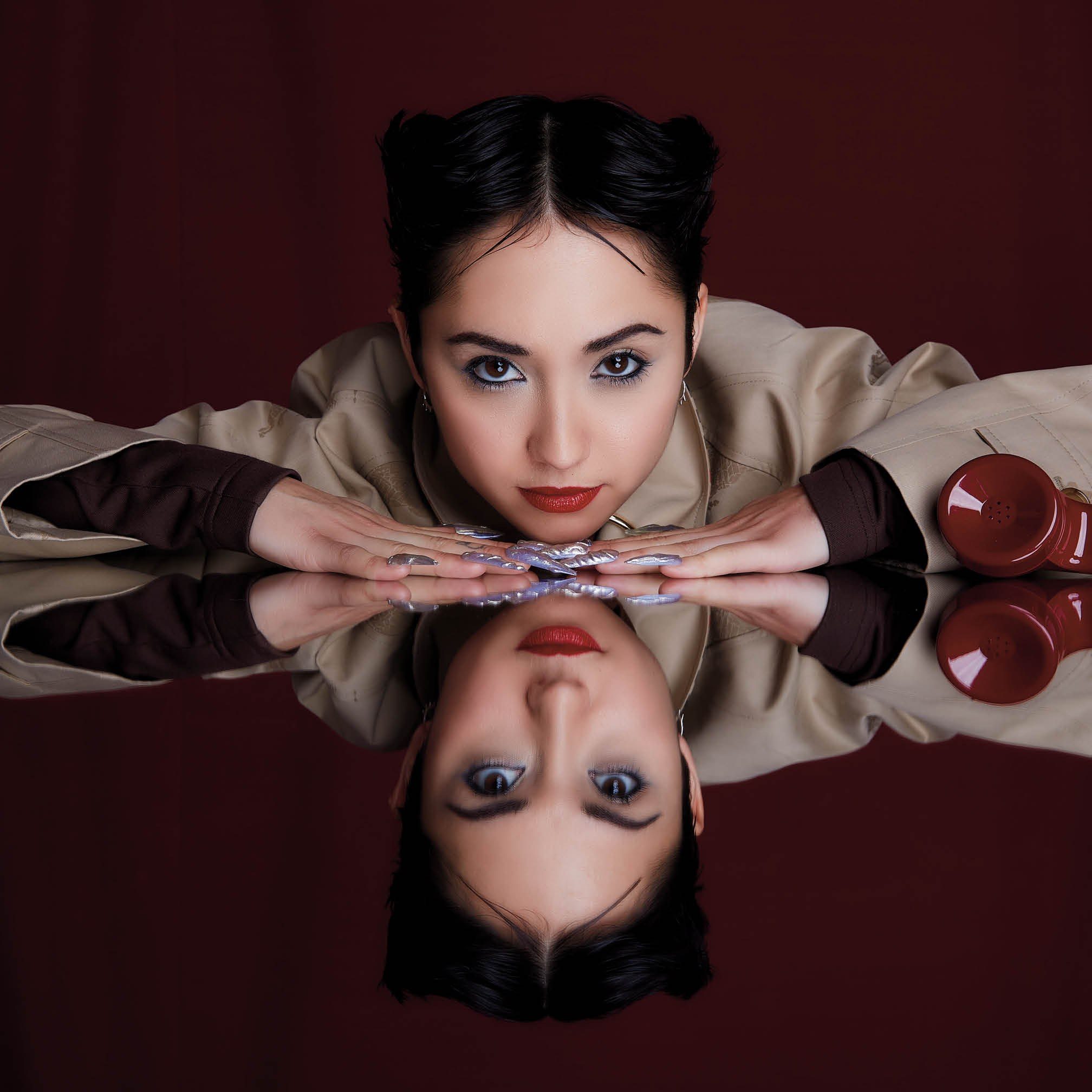
The “pumpers mix”, as it was later dubbed by Boiler Room, was a breakout hit — launching with it a multitude of viral clips, memes and garnering a massive 1.2 million views on YouTube to date. Surrounded by members of the Northern queer scene holding cuddly toys and placards with slogans reading phrases like: “God Loves MDMA”, Peach meanders through luscious house cuts, disco favourites and heavy-hitting techno. Inspiring FOMO from just about anyone who hits the play button, the stream quickly led to an onslaught of bookings for Peach and a flood of fans, eager to experience her sets for themselves. For Peach, it came with upsides and downsides — she was grateful to have found a new audience within the LGBTQI+ community, but the mix’s popularity had created expectations of what she would play. “I’ve been completely pigeonholed by that hour, when people play a banger, people expect to hear that banger. For a long time, when I would play people would get their phones up and flash pictures of RuPaul at me. At the time I thought it was a deep cut, but not anymore,” she laughs.
“I spent a whole year trying to get away from that mix, I went in a different direction to show people that I have depth and I can play other things. I don't have to just play happy music. Even with queer parties, for a long time, I thought I had to play a certain way, but I don't, I can play whatever the fuck I want and people are up for it. I feel joy that it resulted in me playing at lots of queer parties throughout the world — It makes me feel privileged to be part of that community. I haven't watched that mix through in a long time, but there are parts of it where I still get chills and it makes me want to cry. There's a friend of mine in the footage who's now passed, it makes me feel emotional and special.”
While she says that “the fundamentals” of the mix are still part of her DJ tool kit, Peach has explored a multitude of genres in the past five years. I ask her where she currently places herself sonically and her face changes to something akin to a small child tasked with picking one toy to take home from Toys R Us, breathlessly listing off her favourite elements. Among them are vocals, things that roll, stripped-back percussion, emotion, variation in mood, tracks that are high-energy, hi-hats and, of course, house music. She shares that her Rekordbox is organised by a few key categories: “Sassy, heaters, rollers, forward feeling — that’s a new addition actually, those tracks feel proggy, but not too proggy. I think my most important one is ‘landing the plane’. Those are tracks that go from 140 down, so you don’t leave people too frantic at closing. That’s my favourite time to play too, so I really cherish them.”
“I really believe in her approach to DJing,” says regular B2B partner and friend Call Super. “It’s spontaneous, it’s honest, it’s humble, balanced between things for the head and the feet, it’s exuberant… and all of that is what fills the spaces she graces.” Fellow SASS member Saoirse adds: “She has this like techy flow but it always consists of this kind of sexy femme flavour, you can hear her personality in it and it's proper clubbing music — made for heads down moments, you feel sexy when dancing to it.”
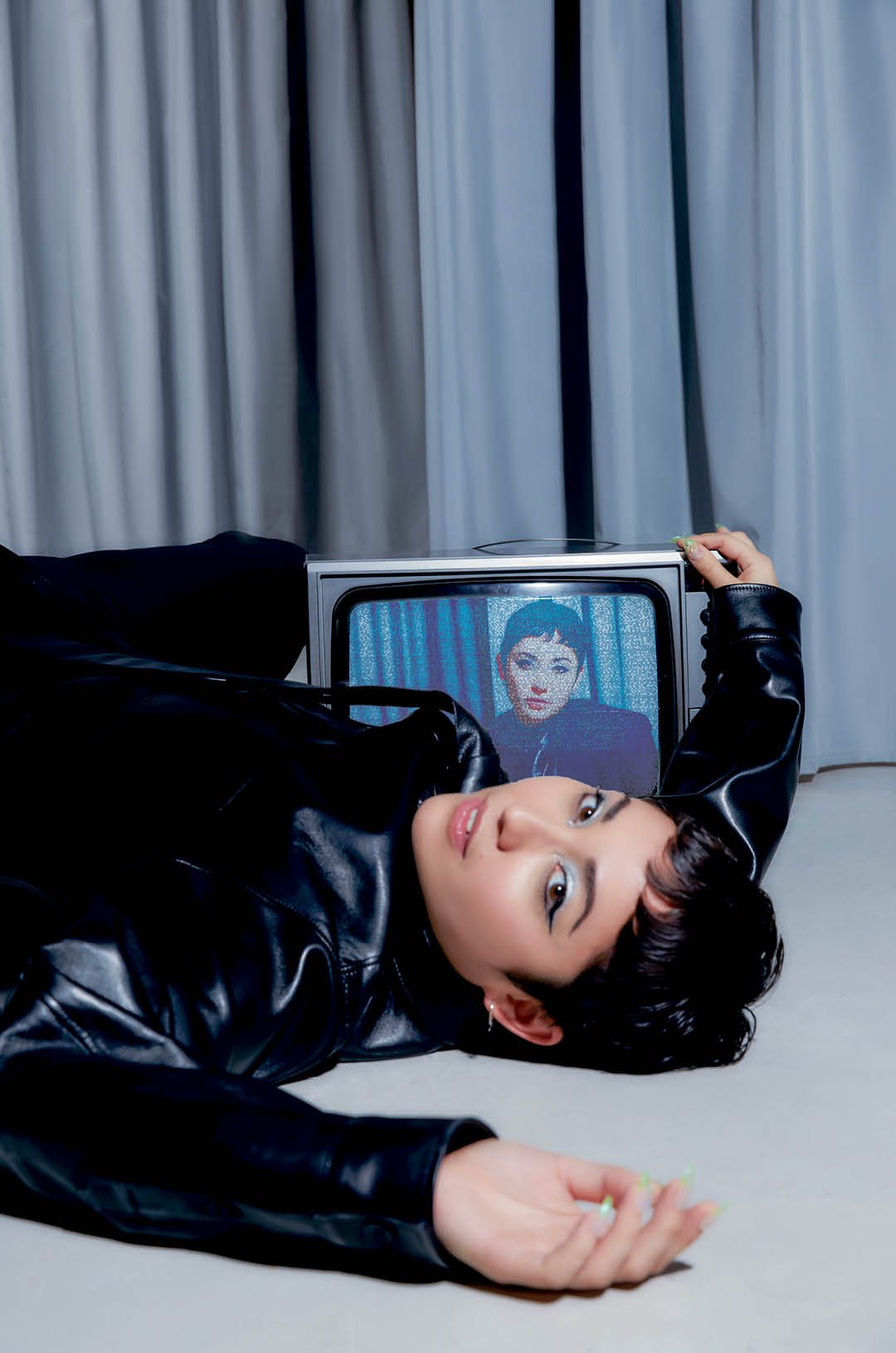
If Peach’s Boiler Room was the moment things “took off” for her as a DJ, the moment for her as a producer must be 2018’s ‘Silky’ on Midland’s Intergraded label — a glittering yet deep club track that would land itself on a plethora of “Best of the year lists” for 2018 and even have its very own viral moment. Despite contributions to compilations such as kaptcha’s ‘xenolith v2.0’ and Leon Vynehall’s ‘DJ-Kicks’, it wouldn’t be until 2021 that Serena would release her debut EP, ‘Galaxy Girl’ on Shanti Celeste’s Peach Discs. A deliberate wait for an artist wanting to perfect her craft. “A lot of artists may have felt the pressure to follow up quickly from something like ‘Silky’,” says Parris. “But she took her time to make sure the follow-up represented her on a label which felt right.” The process for ‘Galaxy Girl’ took “over four years,” Peach says — crediting Celeste with teaching her discipline in the production process. “Shanti was really hard with me, which was good. I'm super thankful for it. So much of my sound has come from working with [Midland] and [Shanti Celeste], I’ve picked up little tricks. I think the tracks that I make, and the confidence that I have now is because of those early conversations.”
“I was proud of her for being patient and wanting to make it as good as it could be and not wanting to rush things,” Celeste says. “That’s something I definitely did when I was younger, you’re so keen to get your music out there — but Serena just kept grinding. I admire her for that.”
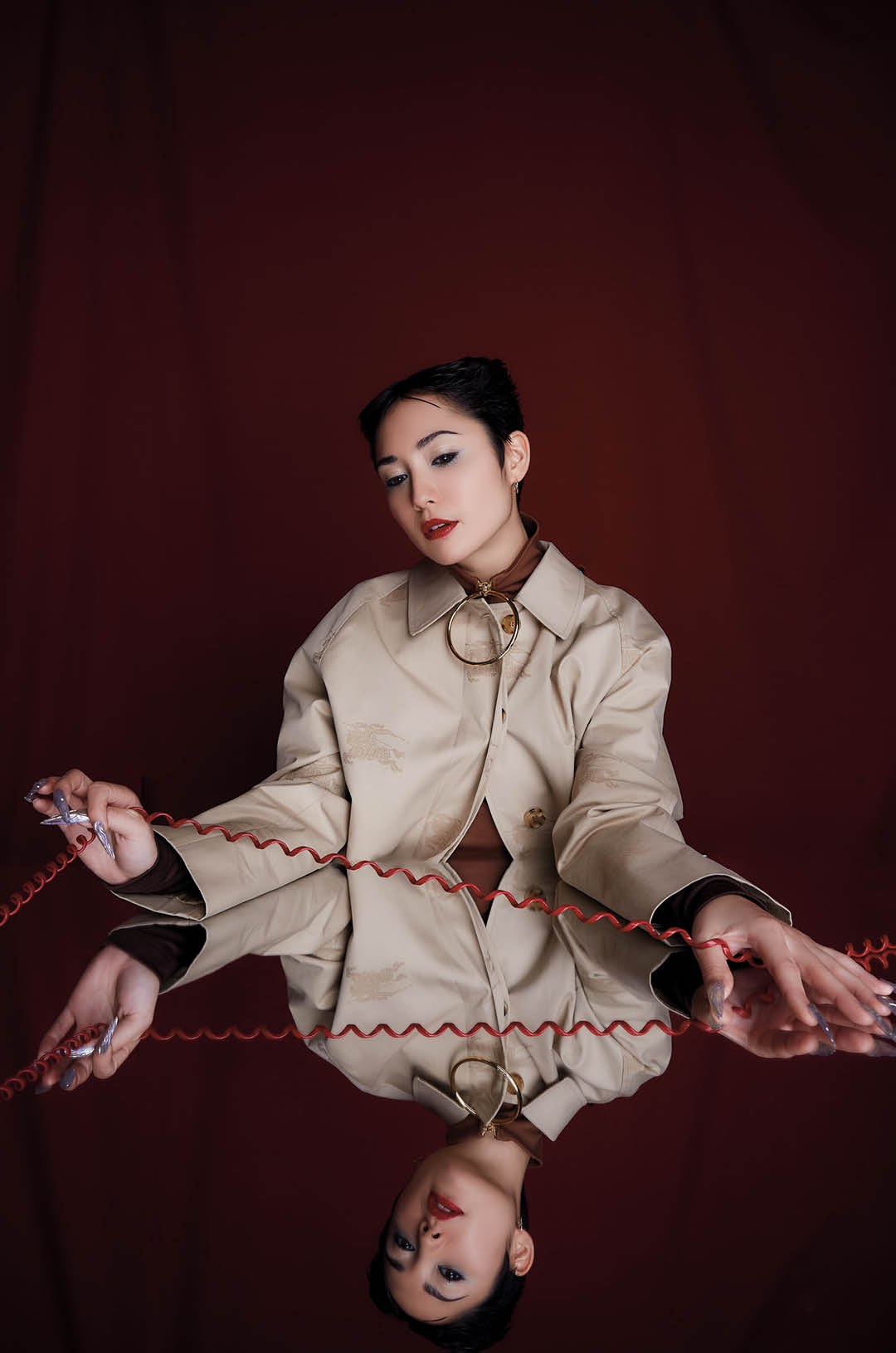
Despite the huge influx of shows after 2018, Serena remained in her full-time advertising job for another year, admitting that she was forced to quit after experiencing burnout. “I was living on adrenaline, I just couldn't believe that I was turning up to gigs and being paid for it. I could never say no to anything. I'm sure there are a lot of people who are this early on in touring who can relate to that. I still have that now, but it's a different energy to when you first start — now, I think one of the most powerful words I use is no.” Spending 2019 in over 30 countries, with sets at Dekmantel, Griessmuehle, Primavera, Junction 2, Love International, Glastonbury and more — Peach had become a must-have booking for any club-focused festival worth its salt. But as the pandemic hit, she suffered the same struggles as many UK-based artists — receiving zero support from the government, being told to “change careers” and having to hold on to hope that she would be able to DJ again. “I spent all my money to exist in the pandemic, I took out a loan to pay my rent, I did everything I could to stay running. I remember there were so many moments of false hope. Shanti, Saoirse, Moxie and I just wouldn't talk about it. We'd not even go there. Everyone was so frustrated and so sad.”

Her first gig back, a set at Little Gay Brother in London, was an emotional one. “I'd been playing Dario Zenker's ‘Hassel’ so much during COVID, waiting for when I could play it in the club again. It’s this amazing house track, when I played it I started bawling. So much so that the videographer came over to me and asked if I was OK, and I was like: ‘I’m just so happy!’” While the excitement of being back behind the decks was “incredible”, Serena admits that she was hit with a similar pressure as many other artists — an influx of new bookings, postponed bookings and the need to recoup some of the earnings lost. After making the decision to only tour in the UK in 2021, she’s now back in the throes of the international circuit — with all the good and bad that comes with it. “I'm still trying to figure out the right balance between touring and life — at this point, I still haven't seen some of my friends for weeks, it just becomes hard to balance it all. I don’t think people realise how switched on we have to be all the time, I don't just magically turn up to the gig and start DJing.”
“I think for me, London was the place that I could explore dance music more and it was where I was able to freely be an artist. I wasn’t able to do that in Toronto, I was so far away from the scene.” she says. “It's unfortunate dance music is so Eurocentric, it’s sad that people in North America end up having to work so hard and travel here so much — with all the bureaucratic difficulty that entails, as well as the toll on your mental well-being. I find it difficult enough to travel there for a few weeks, hats off to the people based there who do this all the time.” Indeed when we meet, she’s just come off the back of a bumper Asian tour with stops in Japan and Korea — notwithstanding an eye-watering number of festival appearances this summer. I ask her what the biggest upsides and downsides are to touring life. The downside? “If I’m in a city and I don’t know the promoters, you can feel a little vulnerable,” she confesses. “I really appreciate the effort queer parties and spaces put in to ensure artists feel at ease. Not that I don't think straight spaces aren't like that at all, but you still get the odd straight promoter who is like ‘Can’t you just walk home?’ and you're there as a 32-year-old woman, scared, being like: ‘Could you walk me home?’ I also know that I exist in a space of privilege, I'm a woman and that's difficult — but I'm not a trans woman who's trying to navigate this.”
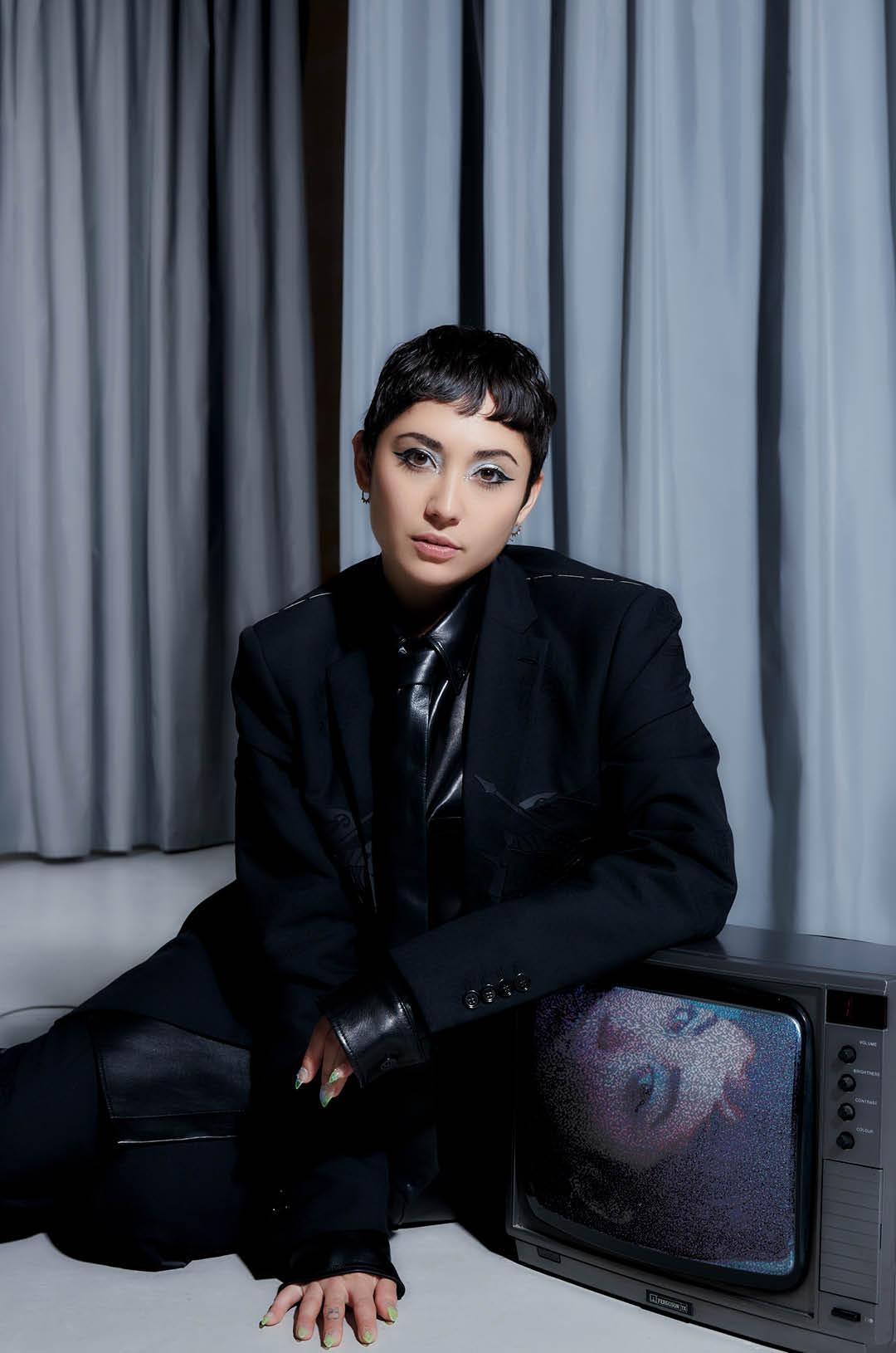
Though the upside, of course, is that she loves travelling, performing and meeting new people — something she racks up, among other things, to her being a Sagittarius. Indeed the theme of our Mixmag cover shoot represents the three most important signs in Serena’s chart: Sagittarius (sun), Leo (moon) and Gemini (rising). “I do get that some people think it's bullshit,” she laughs. We search for a personality test on Google to look at how her signs could describe her as a person. She reads: “You come across as quick-witted, chatty, eclectic and fun — but sometimes inconsistent. But in conversation, you come across as probing and curious.”
“I think if my ascendant says that I come across as pretty fun, I'd like to think, you know… I’m pretty fun,” she laughs. “That is what I'm trying to do with music and everything — I want it to be fun. I think it applies to dance music too and where I sit with it: I feel serious but I don't feel too serious. I obviously feel serious because I care about it — I'm a highly passionate person, I've always really cared. But I also have fun, that's just me.” It seems that this is one of the ultimate dualities of Peach, treading between the worlds of passion and conviction, while also having the most fun she can with it. “I don't think there are any rules around dance music, you should do what you think is right. I think now we're in a time where it benefits you more if you're a little more fluid and less rigid. That's where it loses the fun, it feels serious and it's too much of a calculated process.” With a clear respect for a higher power, Serena still seems to be led by intuition rather than destiny; having spent the last half a decade delicately crafting a steady platform beneath herself, she’s now reached a point where she can artistically fly free. Though what direction the will be next is still undetermined, one thing is for certain — she makes her own good fortune.
Peach's 'Fortune One' is out now via Psychic Readings, get it here
Megan Townsend is Mixmag's Deputy Digital Editor, follow her on Twitter


